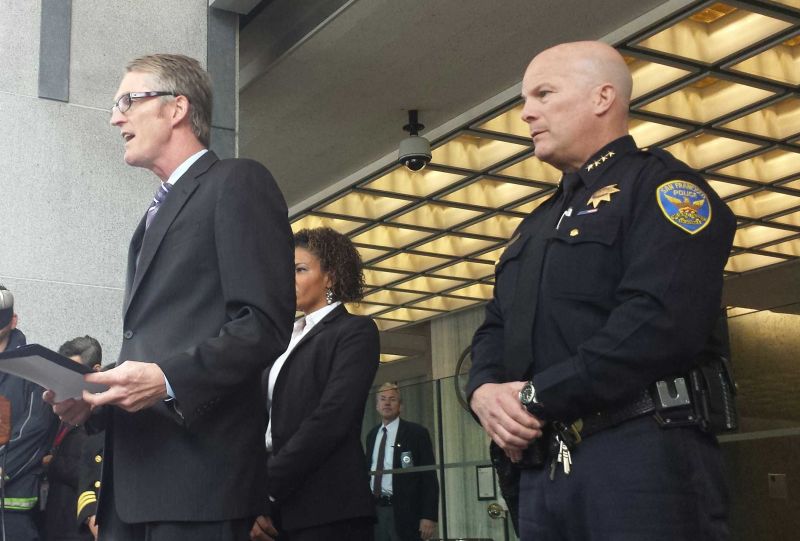CAIR attorney Brice Hamack told the Police Commission on Wednesday that Gilani's travel raised no reasonable suspicion, and he was targeted simply for being "Muslim and Pakistani."
"When he was approached by the SFPD officer in this case, he was asked solely about his constitutionally protected activity of religious practices, traveling association and the sort," Hamack said. He referenced the Police Department's annual report on counterterrorism activities last year, which contained no mention of Gilani's interrogation, despite city law and department policy that appear to require it.
"As far as we had heard, there was nothing wrong, nothing even remotely wrong," Hamack said. "There were no indications that even approached violating the ordinance, yet that turned out to be false."
Police Lt. Daryl Fong, who head's the department's Special Investigation Division, said the contact did not "meet the criteria in which a request would have been made."
"The SFPD stands by the accuracy of the 2014 annual report," Fong told the Police Commission. "The SFPD is unable to discuss the specifics of this case due to a nondisclosure agreement signed with the FBI, which could result in potential civil as well as criminal penalties."
The FBI confirmed to the San Francisco Examiner in March that Joint Terrorism Task Force members interviewed Gilani, but did not elaborate on the nature of the conversation.
The head of the city's Office of Citizen Complaints said last week that the agency is conferring with the city attorney’s office "on our ability to interview the officer involved."
OCC Director Joyce Hicks was absent from Wednesday's Police Commission meeting and declined to elaborate Thursday on why McEachern had yet to be questioned.
Local law also requires the Police Department to submit any written agreement with the FBI regarding joint counterterrorism activities to the Police Commission at an open meeting. The department did not respond to KQED's inquiry about when the nondisclosure agreement Fong referenced was signed or whether the commission was ever notified.
"It’s time to cut through the doublespeak," said John Crew, a retired ACLU attorney who helped craft the department's general order. "It doesn’t say what the lieutenant just said it says. This action clearly required prior authorization, so that there would be a paper trail and there would be an audit and it would be reported."
Police Commissioner Victor Hwang said the Police Department's reports on the FBI joint terrorism activities have been "conclusory," or lacking in supporting evidence.
"The way the complaint was raised to us was that there was a voluntary interview where an SFPD officer participated in response to a public records request," he said. "That seems like that would be some kind of response to a First Amendment activity, and that seems like something that would want to be reported to the commission at least for review and consideration."
Asian Law Caucus attorney Nasrina Bargzie said the local law is clear on Gilani's complaint.
"Riding roughshod over our laws shouldn’t be an option," she told the Police Commission. "And submitting your report that contains assurances of compliance, but refuses to address a filed complaint that blows all of those assurances out of the water, is unacceptable."

